How You Can Help Cancer Survivors
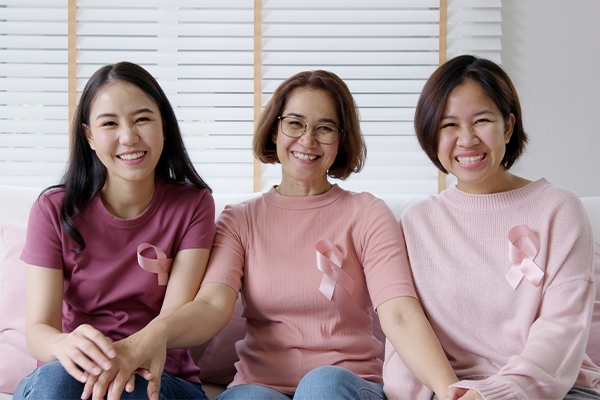
Being present and supporting cancer survivors is not easy. In addition to being physically healthy, caregivers must also be mentally strong.
When a doctor diagnoses cancer, the first response that often arises is an emotional response, such as denial, anger, fear, anxiety, sadness, guilt, loneliness, and feelings of helplessness and uncertainty.
These feelings allow them to withdraw then because they are desperate to continue their daily lives to the point of fear of death. After they start treatment, these feelings do not immediately go away.
The therapy often causes physical impacts, such as hair loss, weight gain, or drastic increases. This condition increases their stress levels, causing anxiety and depression.
Family support is critical at this stage since it can impact their quality of life. If you have friends, relatives, or family who are cancer survivors, here are some ways to make them feel better.
Listening
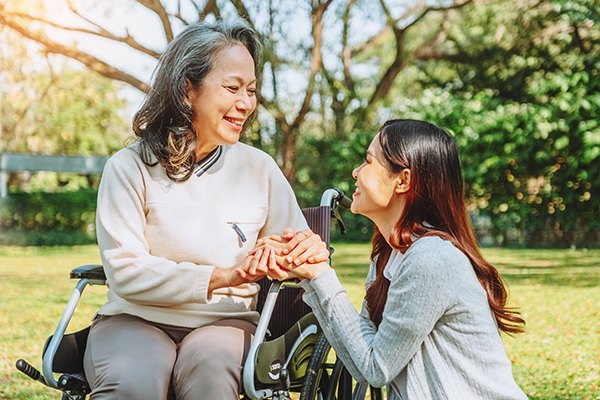
Listening to cancer survivors may sound easy, but it is not. We often want to make everything better, to solve everything. Sometimes, just “listening” or sitting still is enough to help.
At times, cancer survivors don't want to talk. However, this does not mean they do not want you to be there. Being together is essential. You can accompany them in this situation by doing activities together, such as walking, watching a movie, or listening to music.
Try to listen without judgment and without “cheering.” This situation means not saying, “Everything will be okay,” or dismissing your loved one’s reactions. Validate their feelings of fear, sadness, or frustration. Let them know that it is okay to express these emotions.
Unfortunately, emotional challenges do not only come from cancer survivors but also from you. You may be faced with a range of emotions and fears. Therefore, it is also advisable for cancer survivors to have someone to talk to and someone to turn to for help if needed.
Provide care and support
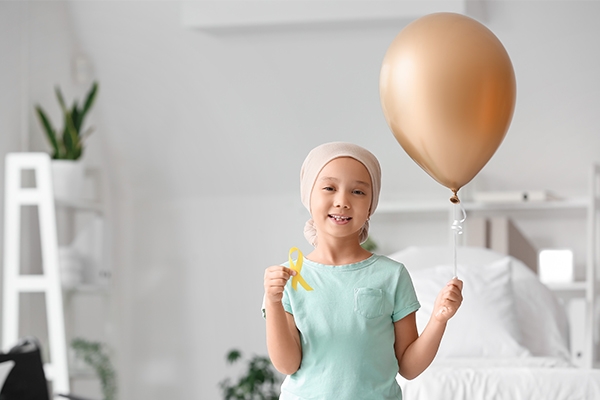
At some time, you will need to talk. “How are you feeling?” can be a much better conversation starter than “How are you feeling?” Use words to express interest, concern, encouragement, and support.
However, some things may not be what the cancer survivor wishes to hear. For example, you could be discussing other cancer survivors who have had the same disease. Remember that everyone’s experiences are unique, so avoid telling them that you understand exactly how they feel.
Learn about their cancer

Cancer can manifest in many different ways. Each form may have a different impact. If they don’t want to talk to you about their sickness, respect that. It can be emotionally and physically draining for them.
However, you may want to ask people close to them or seek out resources about their cancer. However, you should not think you know everything. Remember that cancer and its treatment can affect everyone differently.
Not only cancer survivors but also caregivers need to prepare themselves to deal with their appearance and behavior. Maybe some of their hair has fallen out, gained weight, or maybe they are exhausted from treatment. Caregivers can also watch the signs of some types of cancer and communicate them when the patient is due to see a doctor.
Allow them to feel sadness
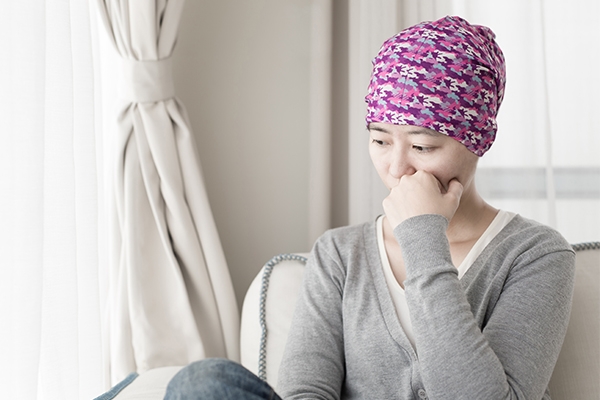
Don't be afraid to laugh and have fun with them. Allow them emotional space to express any sadness. Even if treatment is going well, they may begin to discuss more serious topics, such as funeral plans. You can help by listening. However, encourage them to talk about it with their family and loved ones.
It’s important to let them express their sadness or frustration. It can be tempting to try to comfort them by saying things like, “Of course, you’ll be fine; try to be positive.”
Unfortunately, this can discourage them from talking about their feelings. It can be helpful to listen as they express their feelings, even if it’s stressful.
If you find the topic too difficult, you can say so and offer to talk about it later. Don’t just change the subject without acknowledging that their conversation is important.
If your friend is crying, don’t try to stop them. Reassure them that it’s okay to cry. As upsetting as it may be for you to witness, tears are a natural stress response and may be an essential release for them. Hug and support them during this difficult time, as the warm gesture will ease their sadness.
Be specific when offering assistance
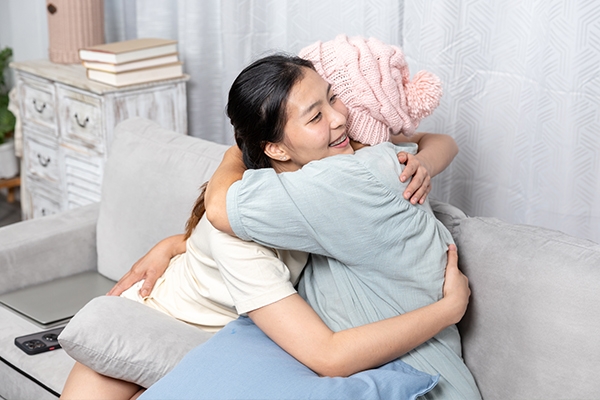
When offering to help, be specific. For example, picking up medicine, driving a child to school, cleaning the house, or taking them to a doctor’s appointment.
If you say you will do something, do it. However, if you are sick, reschedule the assistance you have offered or check if someone else can take over. That way, you don’t pass on your illness to them.
Understand that each diagnosis is unique

Every cancer diagnosis differs. So is every person’s reaction to the diagnosis. Cancer survivors might experience a variety of emotions. These feelings and perspectives might change from day to day or even hour to hour.
You can’t guess their feelings or understand what they’re going through. Respect their mood and how they’re coping.
Remember where we started. Just sitting and listening is one of the best things you can do. Cancer survivors require not only money help but also psychological and physical support to continue treatment or return to the Creator with a feeling of being loved.
Genetic testing services
GWS Medika, a health clinic in Jakarta, provides genetic testing to assess the health risks of all family members. The test can be performed on family members by taking saliva samples.
There are more tests available for women to assess their risk of developing breast cancer risk (BRCA1 and BRCA2 gene mutation tests). Following the test results, genetic counseling, lifestyle changes, and routine check-ups are recommended to discover health problems early.
Click WhatsApp for more information or visit the GWS Medika Clinic, a health clinic in Jakarta, for further examination.
The GWS Medika Clinic has numerous locations, including the Kalibata Apartment, Springhill Apartment, Green Pramuka Apartment, ITC Permata Hijau, and Sudirman Park Apartment.



